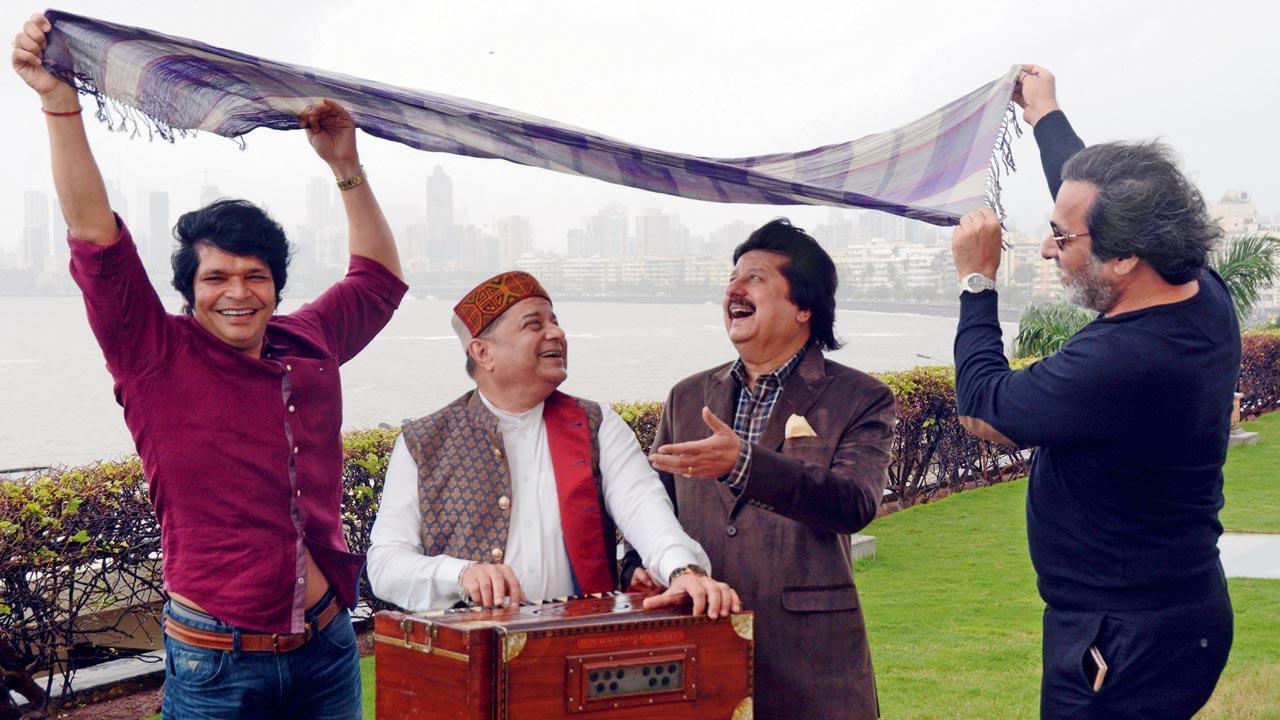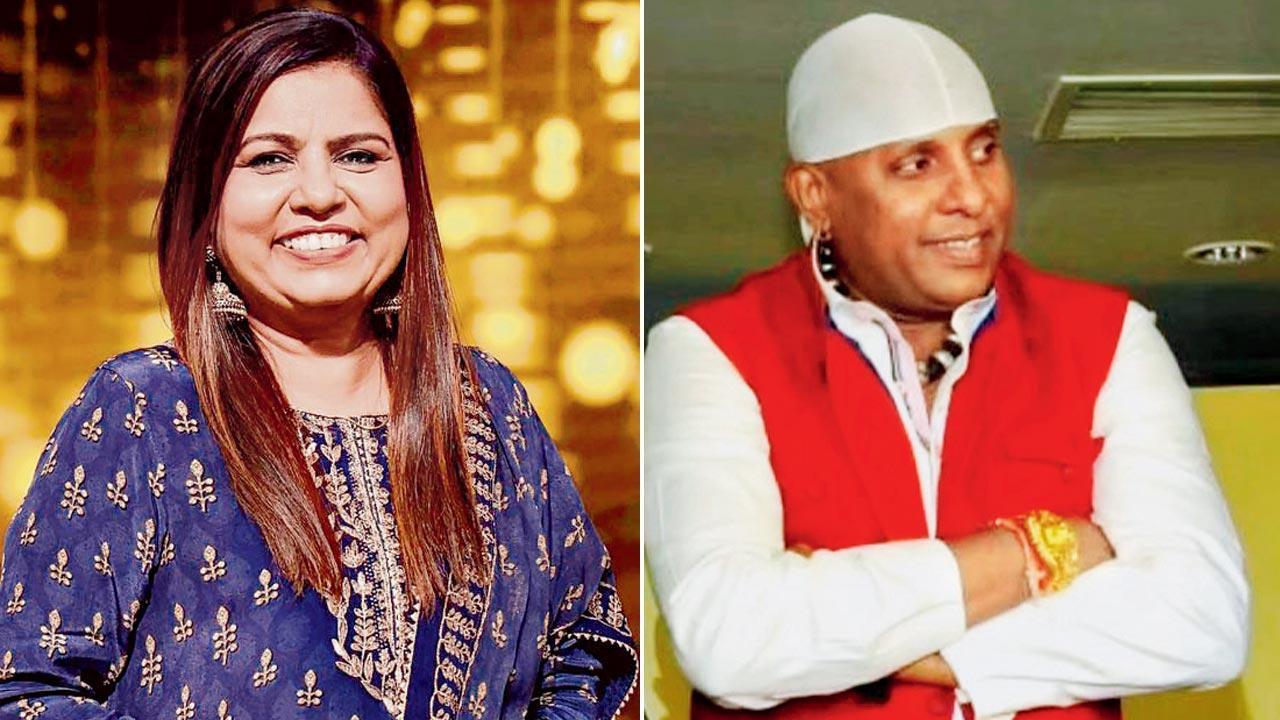Talat Aziz, Anup Jalota, Sadhana Sargam, Sivamani remember Pankaj Udhas
8:18 AM
Posted by Fenil Seta

Udhas flanked by Rakesh Chaurasia, Jalota and Aziz. Pic/Satej Shinde
As the Khazana troika that popularized ghazals loses one of its pillars, Talat Aziz and Anup Jalota remember their friend who encouraged young musical talent
Sonia Lulla (MID-DAY; February 27, 2024)
Were they artistes first, friends later? Or was it the other way around? It’s hard to tell. But one thing is for certain—their shared love for ghazals brought Pankaj Udhas, Talat Aziz and Anup Jalota together, creating a troika that would give the genre of ghazals its fitting place in the world of music with their initiative, Khazana.
On Monday, as news of Udhas’ demise reached Aziz, it marked the end of an era for a friendship. Talking to mid-day from Lucknow, Aziz refers to his late friend’s ghazal to convey his heartbreak.
“All I can say is, [aaj] ghungroo toot gaye. Pankaj and I started our careers together in 1980. He started off with sharabi numbers and branched out to create simple lyrics that appealed to the common man. A lot of his film songs, like Chitthi Aayi Hai [Naam], appealed to the masses. This song used to be his final number [in every show].”
It was in 2002 that the three singers decided to join forces and create Khazana, an annual ghazal festival that would not only put the spotlight on the genre, but also create a platform for aspiring singers and new talent. What started over an informal conversation between the trio soon took on a life of its own, becoming a popular festival that had its 21st edition last year.
Remembering how Udhas wanted to scout young talent, Jalota says, “We wanted the young gen to be exposed to ghazals and create suitable compositions to make it appealing for them. He would try to bring young talent together, which was his endeavour with Khazana. We will continue bringing out Khazana even now.”
He adds that he will always remember the singer for his kindness. “He was kind-hearted and ready to help individuals. His voice was perfect for playback in films, and his music was soulful.”
The last time Aziz spoke to him was when Udhas was admitted to the Breach Candy Hospital. “[At the time], he said he had a viral bug. I saw some videos of him, and he appeared to have [lost a lot of weight]. That’s when I knew something was wrong. We later learnt of his pancreatic cancer. We couldn’t communicate with him at all because he had withdrawn. We knew then that it was only a matter of time.”
-----------------------------------
Sadhana Sargam and Sivamani remember their friend, colleague and co-collaborator
Sonia Lulla (MID-DAY; February 27, 2024)
Singer Sadhana Sargam remembers Pankaj Udhas as “a kind-hearted, sophisticated and very good-natured person.” She says, “His voice was beautiful, a gift from God. His contribution to the field of ghazals [is unparalleled], and he had made a special place for himself in this world. Despite the presence of several revered ghazal artistes, he could create an atmosphere that was [unique to him]. He created an era, and that is a commendable thing that few can do.” Shocked by the news of Udhas’ demise, Sargam admits she had no idea he was so unwell.
“His film songs were popular, and some of the songs that I sang with him, including Mohra’s [1994] Na Kajre Ki Dhar Na Motiyon Ke Haar, continue to hold a special place in my heart. Pankaj ji and I sang it together on stage on many occasions thereafter,” she reminisces.
She also collaborated with him on Khazana and co-created the album, Kabhi Aasoon, Kabhi Khushboo. She adds, “Pankaj ji was successful in bringing Urdu to the people by simplifying it for the masses. His poetry was as simple as he was as a person.”
A self-confessed fan of Udhas’ work, Sivamani shares, “Pankaj ji’s demise is a big loss for the industry. He has given so many singers the chance to showcase their skills on this platform, and that is admirable.”
Calling Udhas a great master, the percussionist adds, “He had a unique voice and was capable of pulling off phenomenal concerts. At his concerts, he focused on presenting and furthering his traditional music appropriately and did it in the most beautiful way possible.”

This entry was posted on October 4, 2009 at 12:14 pm, and is filed under
Anup Jalota,
Bollywood News,
Mohra,
Naam,
Pankaj Udhas,
Sadhana Sargam,
Sivamani,
Talat Aziz
. Follow any responses to this post through RSS. You can leave a response, or trackback from your own site.
Subscribe to:
Post Comments (Atom)
Post a Comment